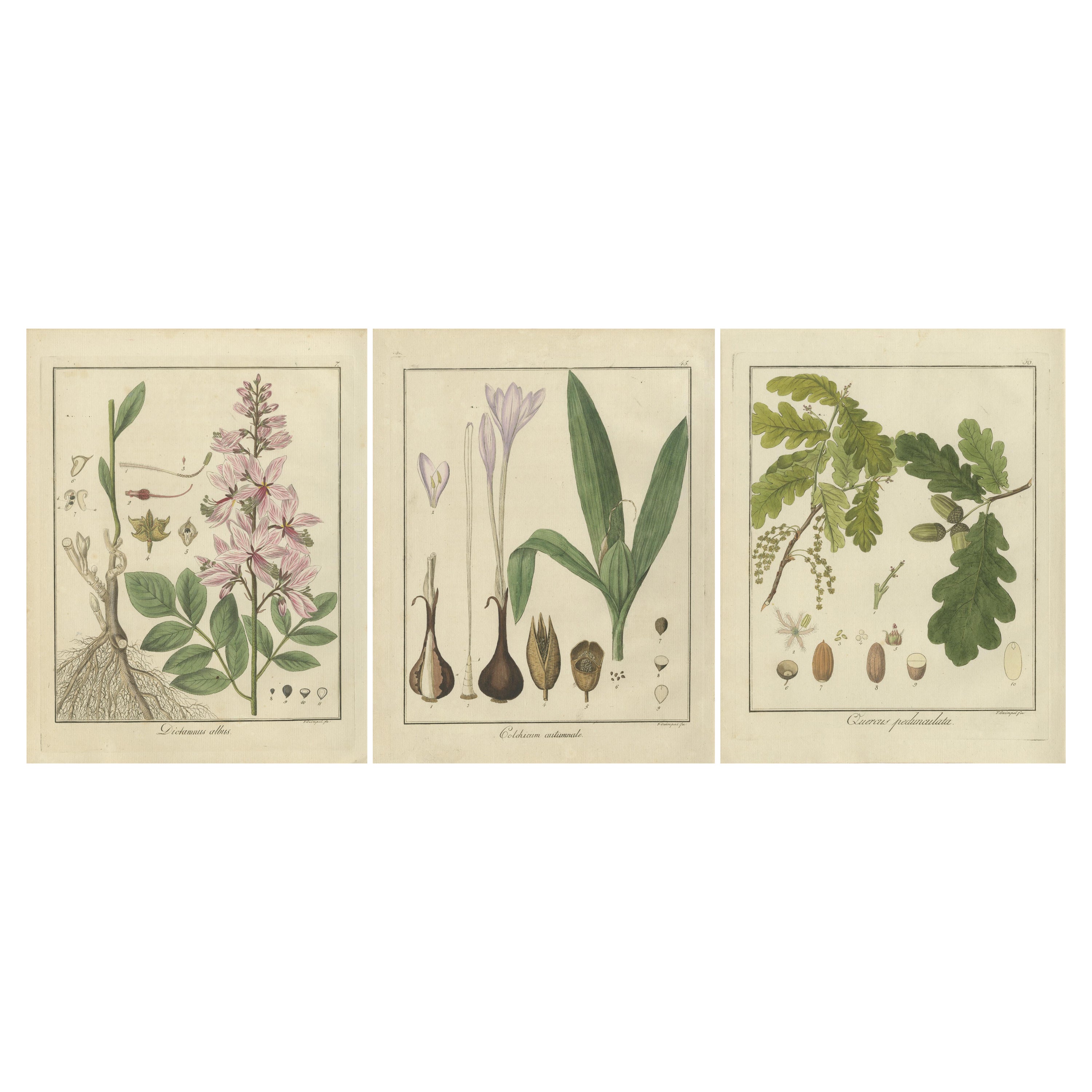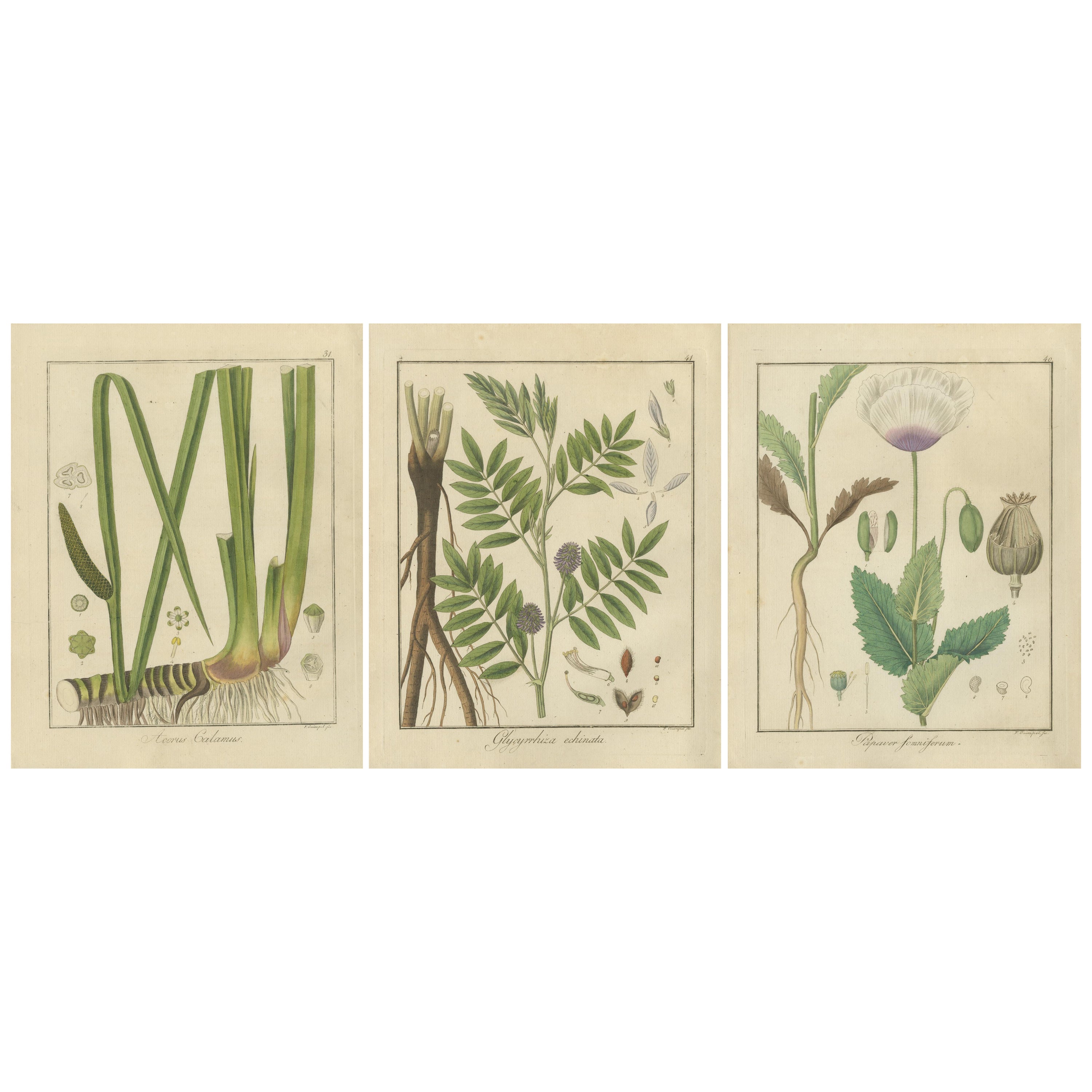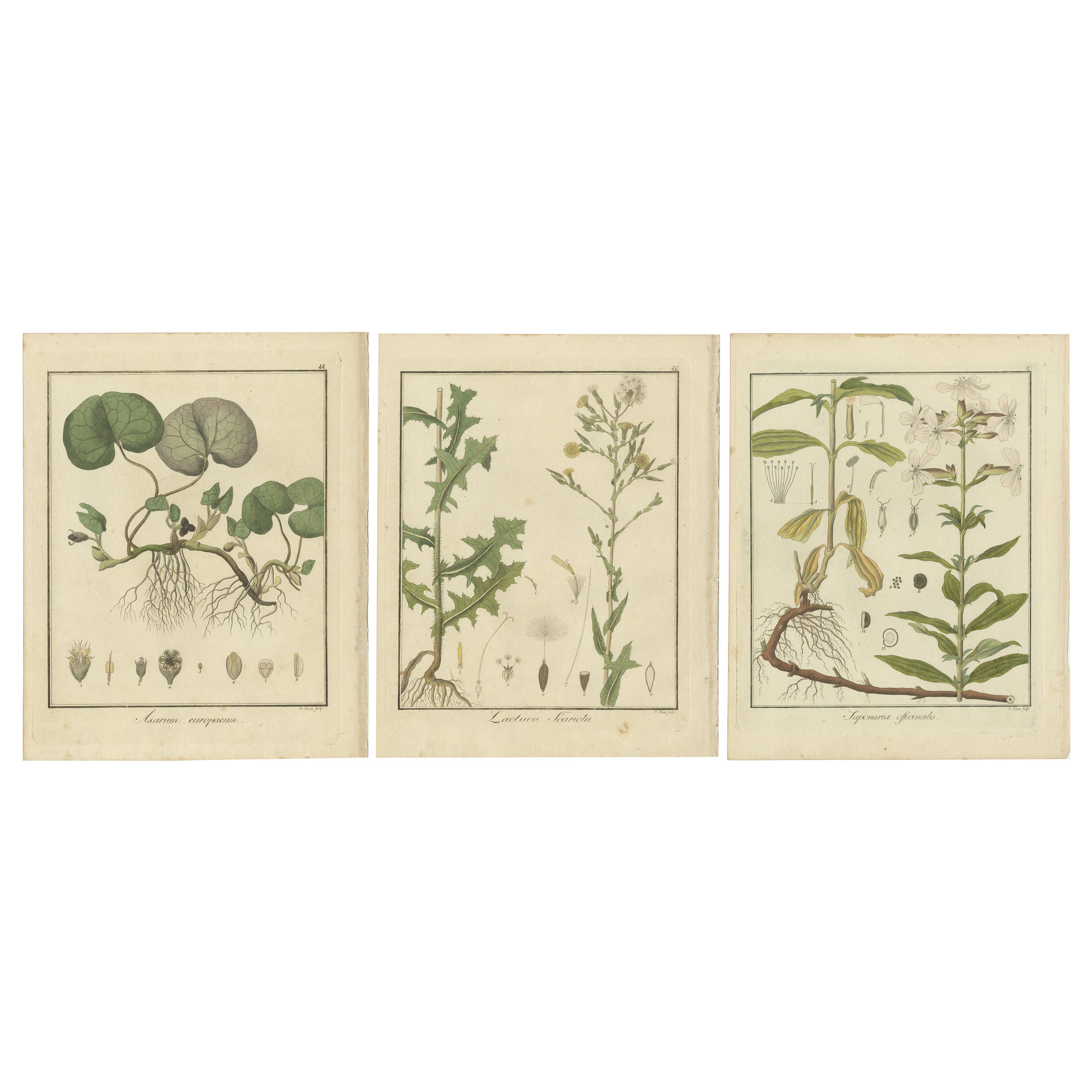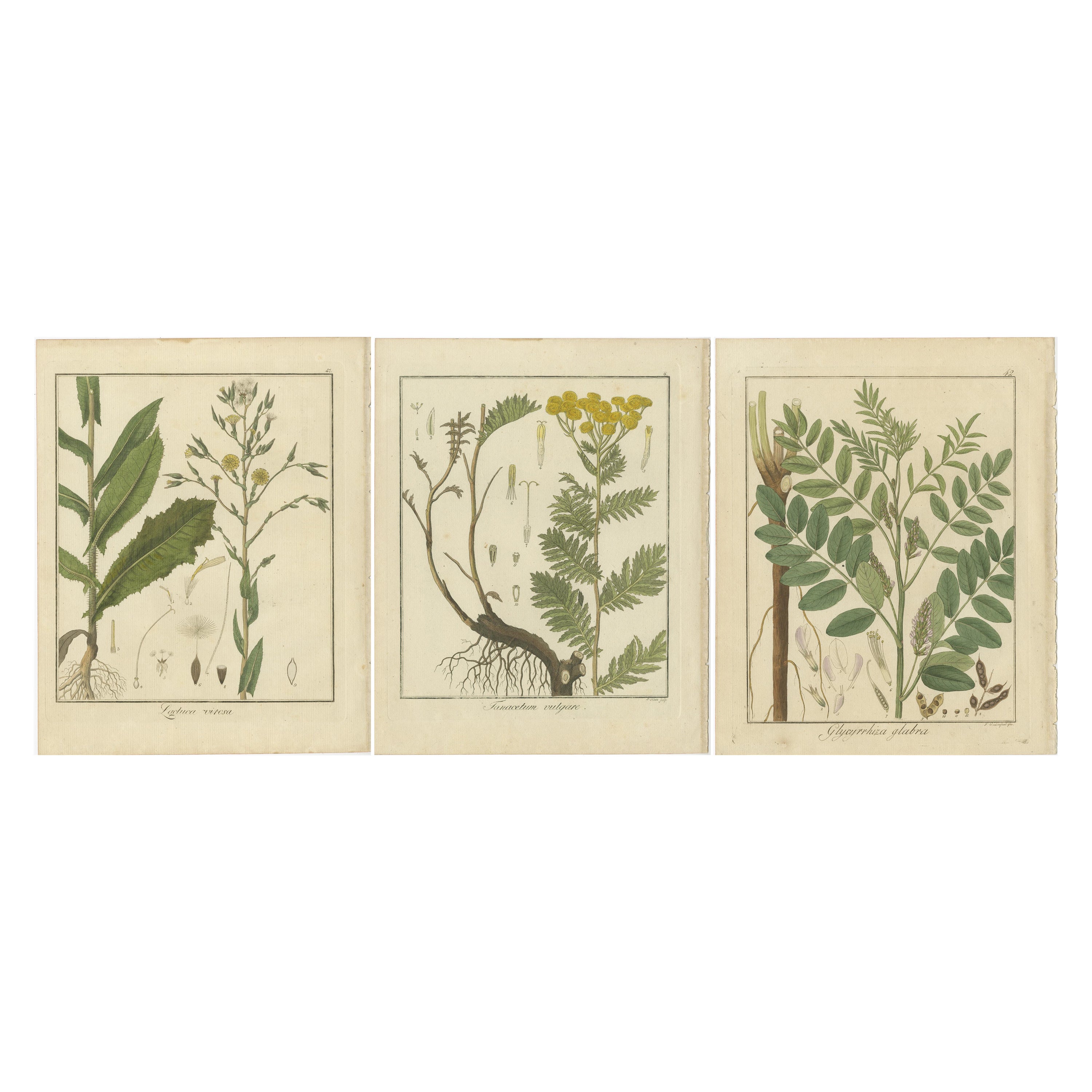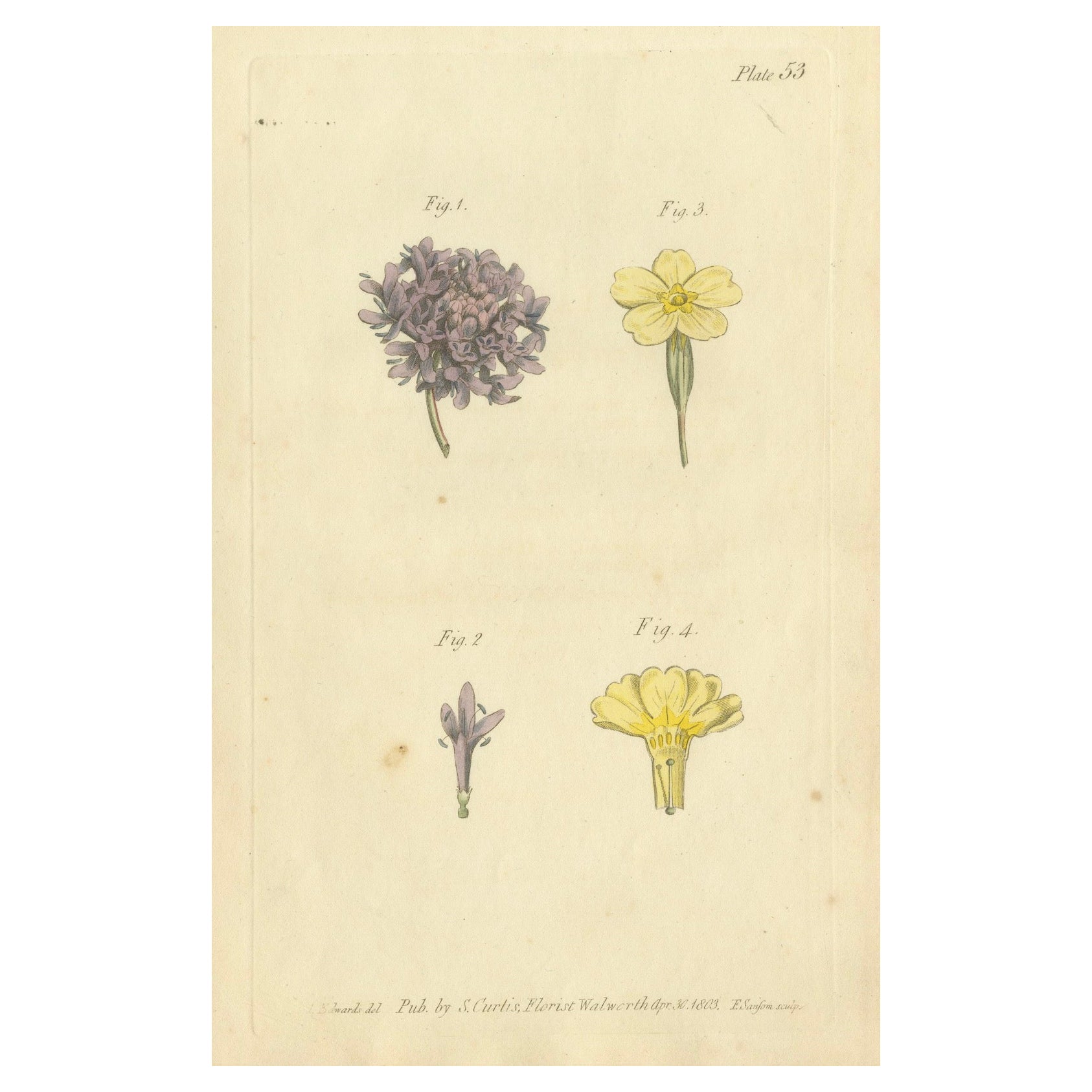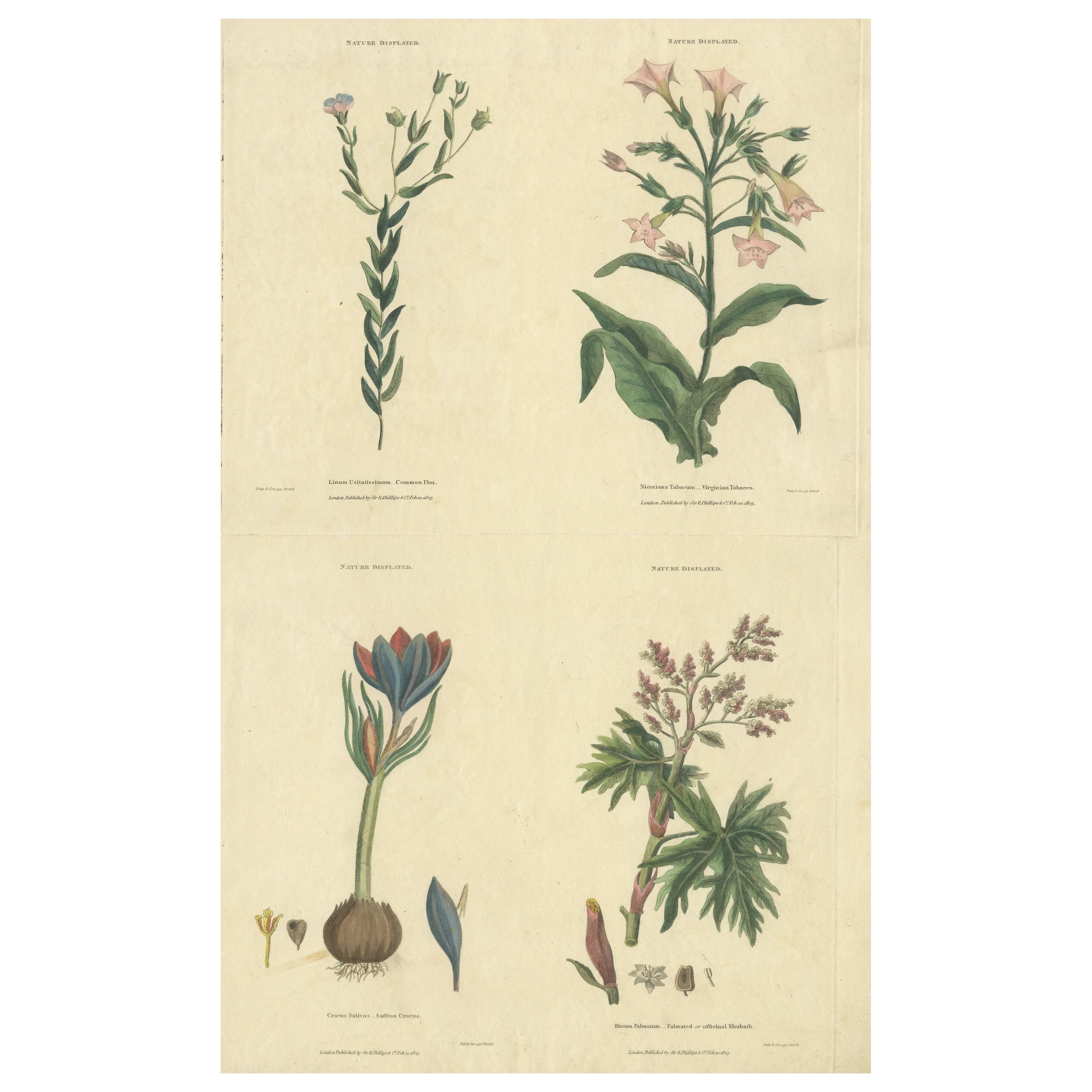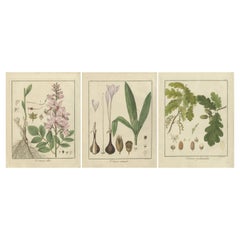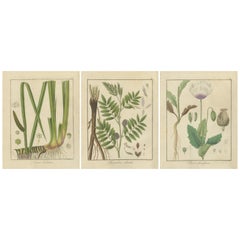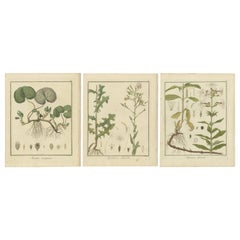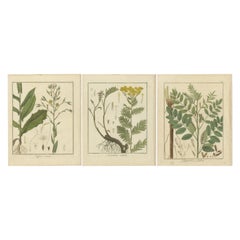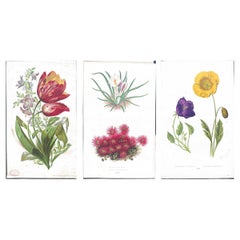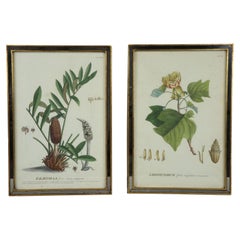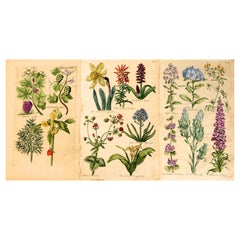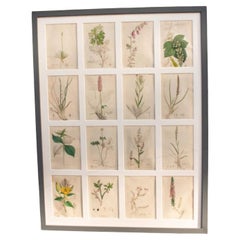Items Similar to English Oak, Cloth of Gold Crocus, and Sand Sedge: Botanical Illustrations 1819
Want more images or videos?
Request additional images or videos from the seller
1 of 6
English Oak, Cloth of Gold Crocus, and Sand Sedge: Botanical Illustrations 1819
$565.33per set
$706.67per set20% Off
£418.94per set
£523.68per set20% Off
€472per set
€590per set20% Off
CA$771.79per set
CA$964.73per set20% Off
A$858.58per set
A$1,073.23per set20% Off
CHF 450.08per set
CHF 562.60per set20% Off
MX$10,491.66per set
MX$13,114.57per set20% Off
NOK 5,731.20per set
NOK 7,164per set20% Off
SEK 5,395.13per set
SEK 6,743.91per set20% Off
DKK 3,593.77per set
DKK 4,492.21per set20% Off
Shipping
Retrieving quote...The 1stDibs Promise:
Authenticity Guarantee,
Money-Back Guarantee,
24-Hour Cancellation
About the Item
Hand-Colored Engravings that were published in the 1819 sixth edition of "Getreue Darstellung und Beschreibung der in der Arzenykunde gebrauchlichen Gewächse" by Friedrich Gottlob Hayne. This work is known for its detailed and accurate botanical illustrations of plants used in medicine during that period.
The engravings in detail:
1. Quercus robur (English Oak): Similar to Quercus pedunculata, this illustration shows the oak’s leaves, acorns, and branches. The English Oak is known for its strong wood and ecological significance.
2. Crocus susianus (Cloth of Gold Crocus): This image depicts the bright yellow flowers of the Crocus, along with its corm and various parts of its reproductive structure. Crocus species are known for their vibrant flowers and, in some cases, for producing saffron.
3. Carex arenaria (Sand Sedge): The illustration shows this grass-like plant commonly found in sandy soils. The roots, stems, and seed structures are detailed, emphasizing its role in soil stabilization and its use in traditional medicine for its diuretic properties.
These three plants each have a history of use in traditional medicine and other applications. Here’s an overview of their uses:
1. Dictamnus albus (Burning Bush or Gas Plant)
- Medicinal Uses: Traditionally, Dictamnus albus has been used for various medicinal purposes, such as treating skin disorders, rheumatism, and digestive issues. It has been used in herbal medicine for its supposed anti-inflammatory, diuretic, and tonic properties.
- Other Uses: The plant is known for releasing a flammable vapor in hot weather, which can be ignited without harming the plant. This characteristic has made it a subject of fascination, leading to its nickname, the "gas plant."
2. Colchicum autumnale (Autumn Crocus)
- Medicinal Uses: The primary active compound in Colchicum autumnale is colchicine, which has been historically used to treat gout due to its ability to reduce inflammation and pain. Colchicine is still used in modern medicine for the treatment of gout and familial Mediterranean fever.
- Toxicity: It's important to note that Colchicum autumnale is highly toxic if ingested improperly. The entire plant contains toxic alkaloids, and improper use can lead to severe poisoning or death.
3. Quercus pedunculata (English Oak)
- Medicinal Uses: English Oak has been used traditionally for its bark, which contains tannins. These tannins have astringent properties, and thus the bark has been used to treat diarrhea, inflammation, and wounds. The acorns, after proper processing, have also been used as a food source.
- Other Uses: Beyond medicinal applications, English Oak is highly valued for its strong and durable wood, which has been used historically in shipbuilding, construction, and furniture-making.
These plants illustrate the rich intersection of botany and medicine, showcasing how various plant species have been used for healing and practical purposes throughout history.
- Dimensions:Height: 10.83 in (27.5 cm)Width: 8.55 in (21.7 cm)Depth: 0 in (0.02 mm)
- Sold As:Set of 3
- Materials and Techniques:Paper,Engraved
- Period:
- Date of Manufacture:1819
- Condition:Condition: excellent given age. General age-related toning. Original hand-colored etching / engraving on hand laid (verge) paper with matermark. The Please study scans carefully.
- Seller Location:Langweer, NL
- Reference Number:Seller: BG-13747-35, BG-13747-36, BG-13747-371stDibs: LU3054341261622
About the Seller
5.0
Recognized Seller
These prestigious sellers are industry leaders and represent the highest echelon for item quality and design.
Platinum Seller
Premium sellers with a 4.7+ rating and 24-hour response times
Established in 2009
1stDibs seller since 2017
2,494 sales on 1stDibs
Typical response time: 1 hour
- ShippingRetrieving quote...Shipping from: Langweer, Netherlands
- Return Policy
Authenticity Guarantee
In the unlikely event there’s an issue with an item’s authenticity, contact us within 1 year for a full refund. DetailsMoney-Back Guarantee
If your item is not as described, is damaged in transit, or does not arrive, contact us within 7 days for a full refund. Details24-Hour Cancellation
You have a 24-hour grace period in which to reconsider your purchase, with no questions asked.Vetted Professional Sellers
Our world-class sellers must adhere to strict standards for service and quality, maintaining the integrity of our listings.Price-Match Guarantee
If you find that a seller listed the same item for a lower price elsewhere, we’ll match it.Trusted Global Delivery
Our best-in-class carrier network provides specialized shipping options worldwide, including custom delivery.More From This Seller
View AllBurning Bush, Autumn Crocus, and English Oak: Botanical Illustrations from 1819
Located in Langweer, NL
These illustrations were published in the 1819 sixth edition of "Getreue Darstellung und Beschreibung der in der Arzenykunde gebrauchlichen Gewächse" by Friedrich Gottlob Hayne. This...
Category
Antique 1810s Prints
Materials
Paper
$565 Sale Price / set
20% Off
Sweet Flag, Russian Licorice, and Opium Poppy: Botanical Illustrations 1819
Located in Langweer, NL
Hand-Colored Engravings that were published in the 1819 sixth edition of "Getreue Darstellung und Beschreibung der in der Arzenykunde gebrauchlichen Gewächse" by Friedrich Gottlob Ha...
Category
Antique 1810s Prints
Materials
Paper
$565 Sale Price / set
20% Off
Engravings of European Wild Ginger, Prickly Lettuce, and Common Soapwort, 1819
Located in Langweer, NL
Description of the Plants in the three original engravings on offer:
1. Asarum europaeum (Common Name: European Wild Ginger)
- This engraving depicts Asarum europaeum, commonly k...
Category
Antique 1810s Prints
Materials
Paper
$565 Sale Price / set
20% Off
Wild Lettuce, Tansy, and Licorice: Botanical Illustrations from 1819
Located in Langweer, NL
These original handcolored botanical engravings are from the work titled "Getreue Darstellung und Beschreibung der in der Arzenykunde gebrauchlichen Gewächse" (which translates to "A...
Category
Antique 1810s Prints
Materials
Paper
$565 Sale Price / set
20% Off
Antique Botanical Engraving of Dyer's Alkanet and Primrose Varieties - 1803
Located in Langweer, NL
Antique Botanical Engraving of Dyer's Alkanet and Primrose Varieties - 1803 Floral Print by Samuel Curtis
This engraving is from "The Bota...
Category
Antique 1790s Prints
Materials
Paper
$134 Sale Price
20% Off
Old Botanical Quartet: Portraits of Flax, Tobacco, Saffron, and Patience, 1823
Located in Langweer, NL
Antique print titled 'Crocus Sativus (..)'. Four images of flowers on one sheet, printed from two plates. The upper two show Linum Usitatissimum (or Common Flax) and Nicotiana tabacu...
Category
Antique Mid-19th Century Prints
Materials
Paper
$210 Sale Price
20% Off
Free Shipping
You May Also Like
Alpine Avens and Crocus – Original Hand-Colored Botanical Print, 1880s
Located in Fukuoka, JP
Alpine Avens and Crocus – Original Hand-Colored Botanical Print, 1880s
A charming original 19th-century botanical print featuring Alpine Avens (Acaena microphylla) and Crocus boryan...
Category
Antique 19th Century British Prints
Materials
Paper
Two 18th Century Hand Colored Botanical Engraving of Plants from (1771)
Located in Stockholm, SE
Adorning the walls, two gracefully framed botanical engravings from 1771 capture nature's elegance in exquisite detail. Delicate strokes of...
Category
Antique 1770s European George III Decorative Art
Materials
Paper
Set of Three Hand Colored Copper Wheel Engraved Floral Prints by John Hill c1756
Located in valatie, NY
Set of Three Hand Colored Copper Wheel Engraved Floral Prints by John Hill c1756. One print signed in the plate, "I Hill." Published in England and hand colored. From an edition of 6...
Category
Antique Mid-18th Century English George III Prints
Materials
Paper
18th century James Sowerby botanical Engravings
By James Sowerby
Located in Seaford, GB
Rare Antique Botanical Prints by James Sowerby (1757–1822): A Timeless Tribute to British Flora
Step into the enchanting world of 18th-century botanical artistry with our exceptiona...
Category
Antique 1790s British Georgian Prints
Materials
Paper
$3,578 / set
Set of Two Rare Botanical Engravings by D’Orbigny — 1849
Located in Fukuoka, JP
Set of Two Rare Botanical Engravings by D’Orbigny — Dictionnaire Universel d’Histoire Naturelle, Paris, 1849
An exquisite pair of original hand-colored botanical engravings from the...
Category
Antique 19th Century French Prints
Materials
Paper
19th Century Botanical Engravings of flowers and insects
Located in Seaford, GB
Pair of 19th-century British plant botanicals Engravings with Insects – John Curtis (1791-1862)
Sold as a pair - Please let us know your choice on your purchase order:
1 - Dandeli...
Category
Antique 19th Century English Victorian Prints
Materials
Paper
More Ways To Browse
Heals Oak Furniture
Antique Rice Box
Antique Shagreen Box
Antique Shell Vanity
Antique Wrought Iron Brackets
Art Deco Skyscraper Shade
Art Deco Uranium Glass
Art Nouveau Tea Pot
Asian Style Furniture Burl
Atelier Hugo
Baby Rattle
Benin Bronze
Black Forest Eagle
Bleached Mahogany Chest
Bombe Box
Brass Pheasant
Brass Pineapples
Bronze Crocodile Sculpture
